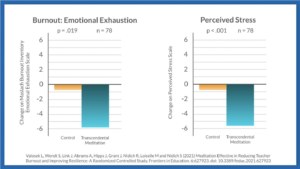There are clear signposts that indicate the experience of burnout. When one feels overwhelmed, emotionally exhausted, and finds it hard to concentrate and remember things, those are some clear signs. When one has trouble making decisions or doesn’t feel any initiative or motivation, burnout may be the cause. If left unaddressed, burnout can make it difficult for individuals to function effectively in their personal and professional lives.
What is burnout?
Herbert Freudenberger, the man who coined the term, defined burnout as “the extinction of motivation or incentive, especially where one’s devotion to a cause or relationship fails to produce the desired results.”
(Herbert Freudenberger, Burnout: The High Cost of High Achievement, Anchor Books, 1980)
There are many reasons why one becomes burned out. Here are some of the top reasons identified by a 2018 Gallup poll:
1. Unreasonable time pressures: not having sufficient time to complete a task can create burnout.
2. Lack of peer support: not having a partner, manager, or peer support increase the likelihood of burnout.
3. Lack of clarity in one’s role: without a clear understanding of what is expected of them, it is more likely that someone will experience burnout.
4. Unmanageable workload: an unreasonable, unmanageable workload creates a feeling of being overwhelmed and hopeless.

Most people’s response to the threat or experience of burnout is a desire to change their work, relationships, or whole life, but that is usually not realistic. An alternative is adopting a self-care routine including a healthy diet, plenty of exercise, and healthy sleep habits. These can help prevent and reduce burnout.
According to the Academy of Pediatric Integrative Medicine, the key to reducing or avoiding burnout is to have a strong internal “locus of control.” Locus of control means having a strong belief that your abilities and actions greatly influence the things that happen to you. It is not being blind to obstacles. Instead, you simultaneously recognise them, maintain a realistic optimistic attitude, and begin to problem solve without fear of failure. It’s beneficial if this is developed in childhood, but it’s never too late to develop this sense of control in your life.
The secret to finding your locus of control is to dive deep within and uncover your hidden inner resources.
“Our life is the expression of our inner potential. We project ourselves to the extent we know of our inner states, and there is much more to life than that
which we are already living.” – Maharishi Mahesh Yogi, founder of the world-wide Transcendental Meditation program.
Transcendental Meditation is a technique that allows anyone to unfold their inner power. TM allows you to dive deep within and experience the quietest and most settled state of awareness, which is the source of your energy, creativity and intelligence. This energy, creativity and intelligence are now part of you and can be utilised. The result is a stronger sense of self, a more positive self-image and a greater willingness and ability to take on challenges.
This greater sense of self has been measured. A 1976 study1 on long-term TM meditators (mean time of practice one and one-half years) showed they had significantly improved locus of control. The study showed improved self-esteem, satisfaction, ego strength, and self-image compared with non-meditating controls. Long term TM meditators also showed significantly less neuroticism, depression, and sensitivity to criticism than non-meditating controls.

TM has also been shown to reduce burnout. For example, a recent study out of San Francisco showed that school teachers experienced far less burnout after they learned TM. In addition, they showed reductions in emotional exhaustion and improvements in depression, depersonalisation, and perceived stress from the regular practice of TM.
You have within you the resources to accomplish anything without fear of burning out. TM allows you to effortlessly tap into those resources. Twice daily practise of the Transcendental Meditation technique can help you enjoy your passion and purpose again and be better prepared to successfully meet the challenges that come your way.
Read more on the benefits of meditation on stress and burnout
1.*Berg WP, Mulder B. Psychological research on the effects of the Transcendental Meditation technique on a number of personality variables. Gedrag: Tijdschrift voor Psychologie (Behaviour: Journal of Psychology) 1976 4:206-218
Vancouver, BC, Victoria, BC, Edmonton, AB, Niagara, ON, Montreal, QC, Sherbrooke, QC, Saint John, NB